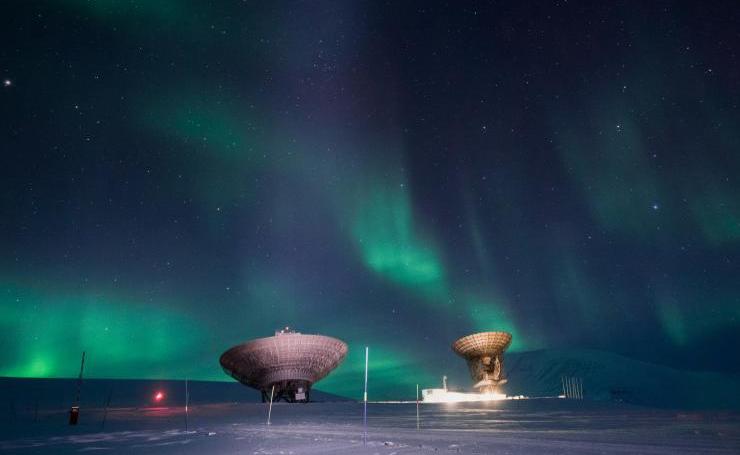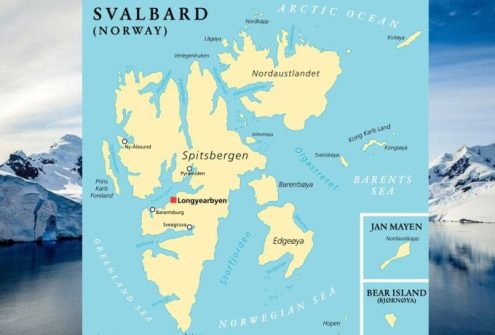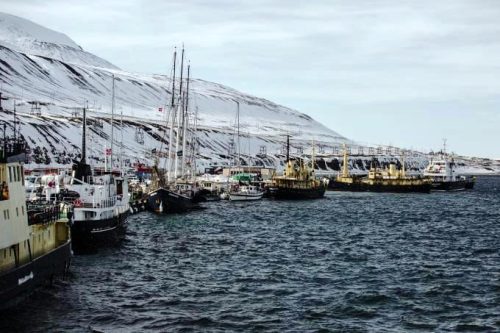The Svalbard islands, the Russian challenge to NATO in the Arctic ice.

The Svalbard archipelago, in the far North of the Arctic, has been an object of deep geopolitical interest for the Russian Federation for decades. The area is still governed by the 1920 Treaty, which gave Norway limited sovereignty over the archipelago.
The Treaty of Svalbard, drawn up in 1920, established Norwegian sovereignty over the archipelago, which had been the subject of geopolitical contention since the era of whaling expeditions in the 19th century. However, it entails some restrictions for Norway, such as the ban on military installations and the commercial freedom for the countries adhering to this treaty comprising 46 states, to be able to settle in the archipelago.
In some cases, there have been legal disputes, in particular on the application of the Norwegian sovereignty of the Treaty relating to the distance in nautical miles away from the coast of the archipelago, in a part of the Arctic Ocean which is of interest to fishing vessels of various nations, including the Russian Federation.

Svalbard Political Map with capital Longyearbyen, a Norwegian archipelago in the Arctic Ocean. iStock.
The exploitation of the coal mines in which the archipelago was rich led the Soviet Union to build permanent settlements such as Barentsburg and Pyramiden, of which only the first is still inhabited today.
According to the Treaty, Norway placed the archipelago under the authority of the Sysselmann, appointed by the Norwegian crown, who performs the functions of civil governor, as well as being the contact figure with the Russian settlements, separated from the main centre of Longyearbyen, where the majority of the population live, mainly Norwegians.In the 1930s, the five-year plan for heavy industry planned by Stalin encouraged the exploitation of the mineral resources of the archipelago, above all through the state company Arktikugol, founded in 1931, responsible for the settlement of Pyramiden and the acquisition from the Dutch company Spitzbergen, of the Barentsburg mining complex, a settlement inhabited by a few hundred Russian citizens and some Ukrainians, heirs of the generation of Soviet miners from Donbas.
Arktikugol, together with the Russian consulate, still manages life in the settlements today. It also operated following Yeltsin’s privatisation of the coal industry. After the reduction of mining activity, the company diversified its activities by focusing, for example, on tourism, a source of income which before 2022 also generated income in foreign currency.
In 1998 Pyramiden was closed and since then all activities have been concentrated in Barentsburg, including the Russian consulate, which maintains the official presence of the Kremlin, while the company’s registered office is in Moscow.The Russian government finances Barentsburg with generous subsidies to maintain a strategic presence within the ambit of Russia’s Arctic policy.
The conflict between Russia and Ukraine has undermined the peaceful coexistence between the Norwegian and Russian communities, with migration, already begun before 2022, by Ukrainian citizens
present in Barentsburg.

The Longyearbyen harbour at Svalbard. iStock/Andre Schmitt
The Arktikugol, controlled by the Kremlin, aligned itself with official thinking on the “special military operation” through censorship of social networks and organised a pompous Victory Day parade in 2023, in which the Norwegian Sysselmann was also invited, which he refused in line with the policy of Oslo, a NATO member, supporter of Western sanctions as well as the sending of weapons to Ukraine.
The defence of Russian interests in the world is one of the cornerstones of the foreign policy of the Kremlin. The Svalbard Treaty thus becomes an object of contention and, recently, Russian Deputy Prime Minister Yuri Trutnev compared the rights of Russian-speaking people in Ukraine to the Russians of Svalbard, complaining, in his opinion, of a Norwegian policy hostile to economic development and to scientific research on the Russian side.For Oslo, the Russian threat could concern not only disinformation but also the possible sabotage of marine oil and gas pipelines, as well as telecommunications transmission cables. Norway, in fact, is a fundamental supplier of oil and natural gas for several EU countries, which is now even more important following the Western sanctions that hit the Russian economy and reduced gas imports from Gazprom. (Open Photo: Polar Northern lights in the mountains of Svalbard, Longyearbyen, Spitsbergen, Norway. iStock/ BublikPolina)
Lorenzo Pallavicini/CgP



